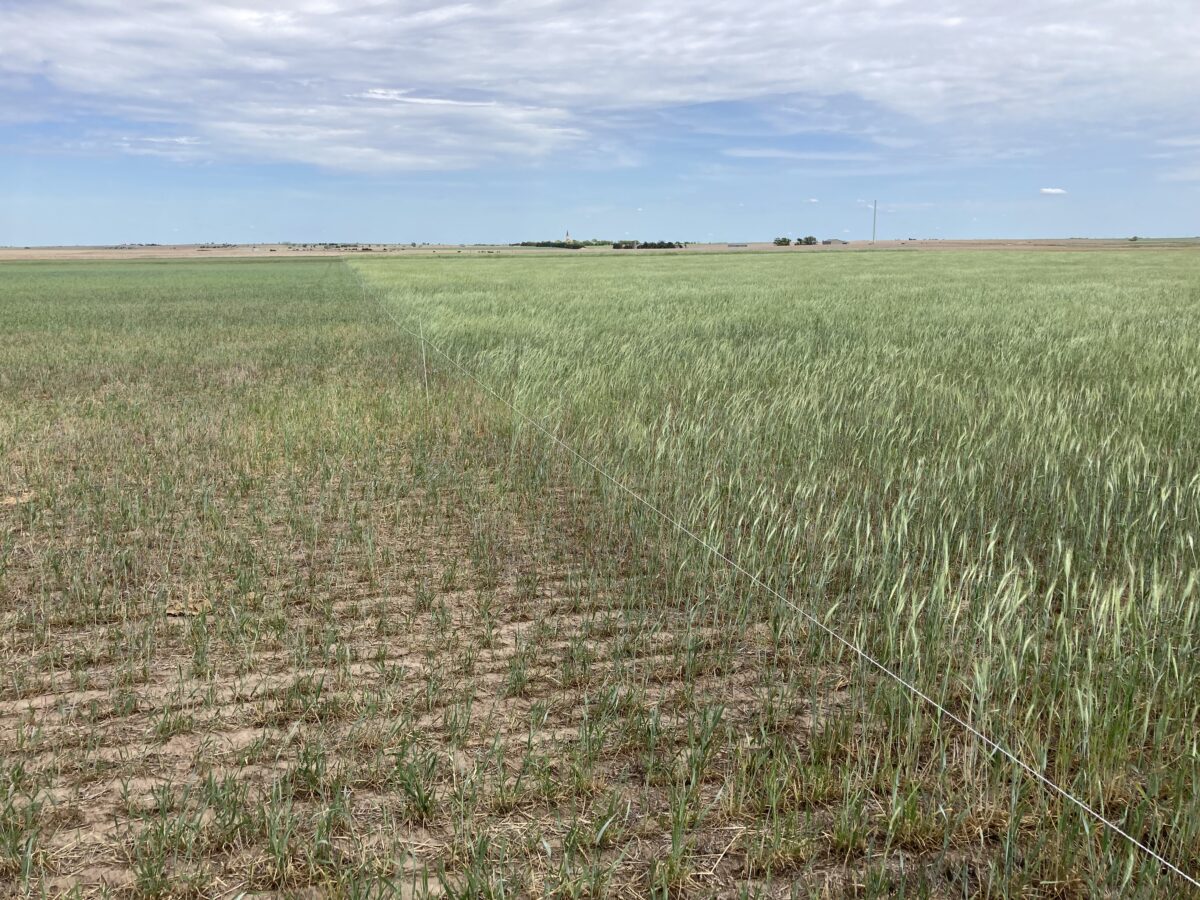In the semiarid climate of the Great Plains, persistent drought is increasingly contributing to crop failure and soil erosion. A recent North Central SARE Research and Education grant in Kansas demonstrated how integrating crops, livestock and cover crops could help some producers offset revenue loss and failing crops.
Kansas State University’s Dr. Augustine Obour partnered with producers to conduct a long-term research project examining the potential of integrating cover crops in dryland wheat production systems. The team found that grazing or harvesting covers for forage can diversify revenue streams while protecting soil from erosion. Now, policymakers are increasingly encouraging cover crop grazing, and farmers are changing practices to boost income, improve soil quality and suppress herbicide-resistant weeds.
As a result, the project is improving environmental sustainability and revenue streams while increasing the production efficiency of farmers who adopt the new practice.
A recent post-project evaluation of SARE projects awarded between 2016–2019 found that partnering with farmers to conduct on-farm research helped validate the project’s findings.
“Most grants don’t have a farmer requirement, but SARE does,” says Obour. “It is very helpful because farmers have different perspectives on what works and what doesn’t. You have to work with a farmer to determine what will work in their environment.”

For more information on this project, visit https://www.sare.org/sare-impacts-LNC18-411.
Cover Crop Management Options to Improve Weed Control, Crop Yield and Soil Health is part of a series of 23 case studies produced by Insight for Action as part of a post-project evaluation of SARE's regional grant programs. For more information visit https://www.sare.org/sare-impacts.
For information on grants and resources available from SARE, visit www.sare.org.